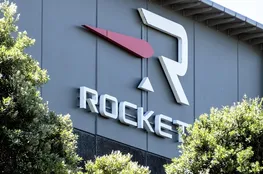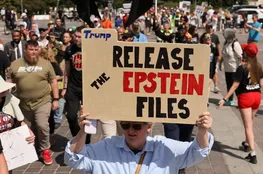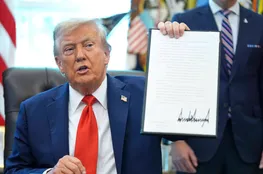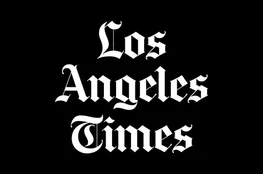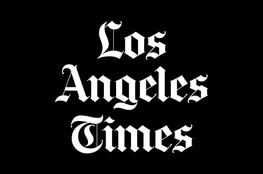The Pentagon Press Association’s forceful condemnation of Defense Secretary Pete Hegseth’s newly implemented restrictions on press access at the Pentagon reveals a concerning pattern of escalating limitations on journalistic freedom and transparency surrounding U.S. military operations. The association’s sharp criticism, labeling the changes as "a direct attack on the freedom of the press and America’s right to know what its military is doing," underscores the profound implications of these actions for accountability and public understanding of critical national security matters. The core of the issue lies in Hegseth’s strategy, characterized by a deliberate effort to stifle independent media outlets, mirroring steps taken since January by him and his Trump administration allies. This approach has manifested in numerous ways, including the removal of established news organizations from their dedicated Pentagon workspaces, replacing them with smaller, explicitly pro-Trump media outlets – a move framed by the Department of Defense as a "media rotation program." Furthermore, the closure of the Pentagon’s press briefing room when not in use for public briefings represents a significant curtailment of journalists’ ability to gather information directly from top officials. The justification offered – that these measures are "p pragmatic changes to protect operational security" – is met with skepticism, particularly given previous instances of sensitive information being leaked, such as Hegseth’s sending detailed plans about a military operation in Yemen to a Signal group including The Atlantic editor-in-chief Jeffrey Goldberg. This incident highlights a troubling disregard for protocol and raises serious questions about oversight and security within the Department of Defense. The new restrictions further complicate journalists’ access to Pentagon press officers, individuals specifically hired to respond to press queries, effectively diminishing a crucial channel for information dissemination. The Defense Department’s rationale, citing the obligation to protect "classified intelligence and sensitive information," is presented as a justification for these limitations, but critics argue that the restrictions are overly broad and intended to shield the administration from scrutiny. The Pentagon Press Association’s repeated attempts to engage with Hegseth and his aides, seeking to maintain a professional working relationship built over decades, have been unsuccessful, indicating a deliberate and antagonistic approach. The association’s bewilderment regarding the Department’s focus on restricting media access, rather than engaging with it as senior leaders have long done, speaks volumes about the current climate. Hegseth’s public comments, characterized by denouncements of the media as the "hoax press" and his reliance on right-wing content creators for promotional efforts, demonstrate a clear bias and a willingness to marginalize independent reporting. This strategy, coupled with the restrictions on press access, fosters an environment of distrust and undermines the vital role of a free press in safeguarding democratic oversight and holding the military accountable. The concerns voiced by figures like Mike Balsamo, president of the National Press Club, regarding the impact of restricted access on public trust and democratic accountability, are profoundly relevant. Independent coverage of the military is not simply a matter of journalistic practice; it is a cornerstone of a functioning democracy, ensuring that voters are informed, strengthening oversight, and sending a clear message to the world that America stands for openness and accountability.
The Pentagon Press Association’s forceful condemnation of Defense Secretary Pete Hegseth’s newly implemented restrictions on press access at the Pentagon reveals a concerning pattern of escalating limitations on journalistic freedom and transparency surrounding U.S. military operations. The association’s sharp criticism, labeling the changes as "a direct attack on the freedom of the press and America’s right to know what its military is doing," underscores the profound implications of these actions for accountability and public understanding of critical national security matters. The core of the issue lies in Hegseth’s strategy, characterized by a deliberate effort to stifle independent media outlets, mirroring steps taken since January by him and his Trump administration allies. This approach has manifested in numerous ways, including the removal of established news organizations from their dedicated Pentagon workspaces, replacing them with smaller, explicitly pro-Trump media outlets – a move framed by the Department of Defense as a "media rotation program." Furthermore, the closure of the Pentagon’s press briefing room when not in use for public briefings represents a significant curtailment of journalists’ ability to gather information directly from top officials. The justification offered – that these measures are "p pragmatic changes to protect operational security" – is met with skepticism, particularly given previous instances of sensitive information being leaked, such as Hegseth’s sending detailed plans about a military operation in Yemen to a Signal group including The Atlantic editor-in-chief Jeffrey Goldberg. This incident highlights a troubling disregard for protocol and raises serious questions about oversight and security within the Department of Defense. The new restrictions further complicate journalists’ access to Pentagon press officers, individuals specifically hired to respond to press queries, effectively diminishing a crucial channel for information dissemination. The Defense Department’s rationale, citing the obligation to protect "classified intelligence and sensitive information," is presented as a justification for these limitations, but critics argue that the restrictions are overly broad and intended to shield the administration from scrutiny. The Pentagon Press Association’s repeated attempts to engage with Hegseth and his aides, seeking to maintain a professional working relationship built over decades, have been unsuccessful, indicating a deliberate and antagonistic approach. The association’s bewilderment regarding the Department’s focus on restricting media access, rather than engaging with it as senior leaders have long done, speaks volumes about the current climate. Hegseth’s public comments, characterized by denouncements of the media as the "hoax press" and his reliance on right-wing content creators for promotional efforts, demonstrate a clear bias and a willingness to marginalize independent reporting. This strategy, coupled with the restrictions on press access, fosters an environment of distrust and undermines the vital role of a free press in safeguarding democratic oversight and holding the military accountable. The concerns voiced by figures like Mike Balsamo, president of the National Press Club, regarding the impact of restricted access on public trust and democratic accountability, are profoundly relevant. Independent coverage of the military is not simply a matter of journalistic practice; it is a cornerstone of a functioning democracy, ensuring that voters are informed, strengthening oversight, and sending a clear message to the world that America stands for openness and accountability.
The Pentagon Press Association’s forceful condemnation of Defense Secretary Pete Hegseth’s newly implemented restrictions on press access at the Pentagon reveals a concerning pattern of escalating limitations on journalistic freedom and transparency surrounding U.S. military operations. The association’s sharp criticism, labeling the changes as "a direct attack on the freedom of the press and America’s right to know what its military is doing," underscores the profound implications of these actions for accountability and public understanding of critical national security matters. The core of the issue lies in Hegseth’s strategy, characterized by a deliberate effort to stifle independent media outlets, mirroring steps taken since January by him and his Trump administration allies. This approach has manifested in numerous ways, including the removal of established news organizations from their dedicated Pentagon workspaces, replacing them with smaller, explicitly pro-Trump media outlets – a move framed by the Department of Defense as a "media rotation program." Furthermore, the closure of the Pentagon’s press briefing room when not in use for public briefings represents a significant curtailment of journalists’ ability to gather information directly from top officials. The justification offered – that these measures are "p pragmatic changes to protect operational security" – is met with skepticism, particularly given previous instances of sensitive information being leaked, such as Hegseth’s sending detailed plans about a military operation in Yemen to a Signal group including The Atlantic editor-in-chief Jeffrey Goldberg. This incident highlights a troubling disregard for protocol and raises serious questions about oversight and security within the Department of Defense. The new restrictions further complicate journalists’ access to Pentagon press officers, individuals specifically hired to respond to press queries, effectively diminishing a crucial channel for information dissemination. The Defense Department’s rationale, citing the obligation to protect "classified intelligence and sensitive information," is presented as a justification for these limitations, but critics argue that the restrictions are overly broad and intended to shield the administration from scrutiny. The Pentagon Press Association’s repeated attempts to engage with Hegseth and his aides, seeking to maintain a professional working relationship built over decades, have been unsuccessful, indicating a deliberate and antagonistic approach. The association’s bewilderment regarding the Department’s focus on restricting media access, rather than engaging with it as senior leaders have long done, speaks volumes about the current climate. Hegseth’s public comments, characterized by denouncements of the media as the "hoax press" and his reliance on right-wing content creators for promotional efforts, demonstrate a clear bias and a willingness to marginalize independent reporting. This strategy, coupled with the restrictions on press access, fosters an environment of distrust and undermines the vital role of a free press in safeguarding democratic oversight and holding the military accountable. The concerns voiced by figures like Mike Balsamo, president of the National Press Club, regarding the impact of restricted access on public trust and democratic accountability, are profoundly relevant. Independent coverage of the military is not simply a matter of journalistic practice; it is a cornerstone of a functioning democracy, ensuring that voters are informed, strengthening oversight, and sending a clear message to the world that America stands for openness and accountability.




